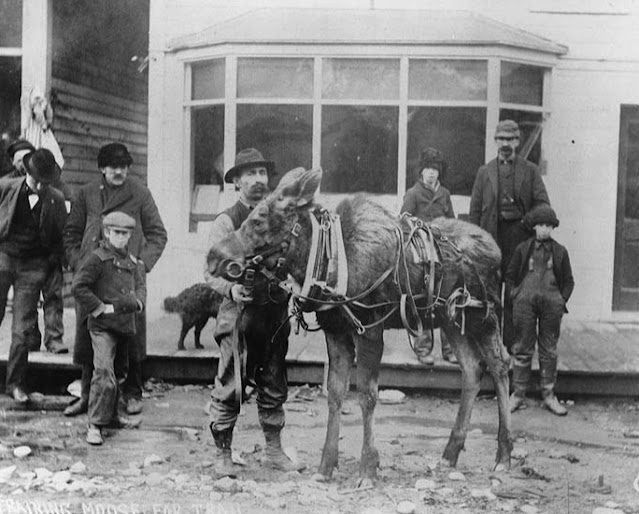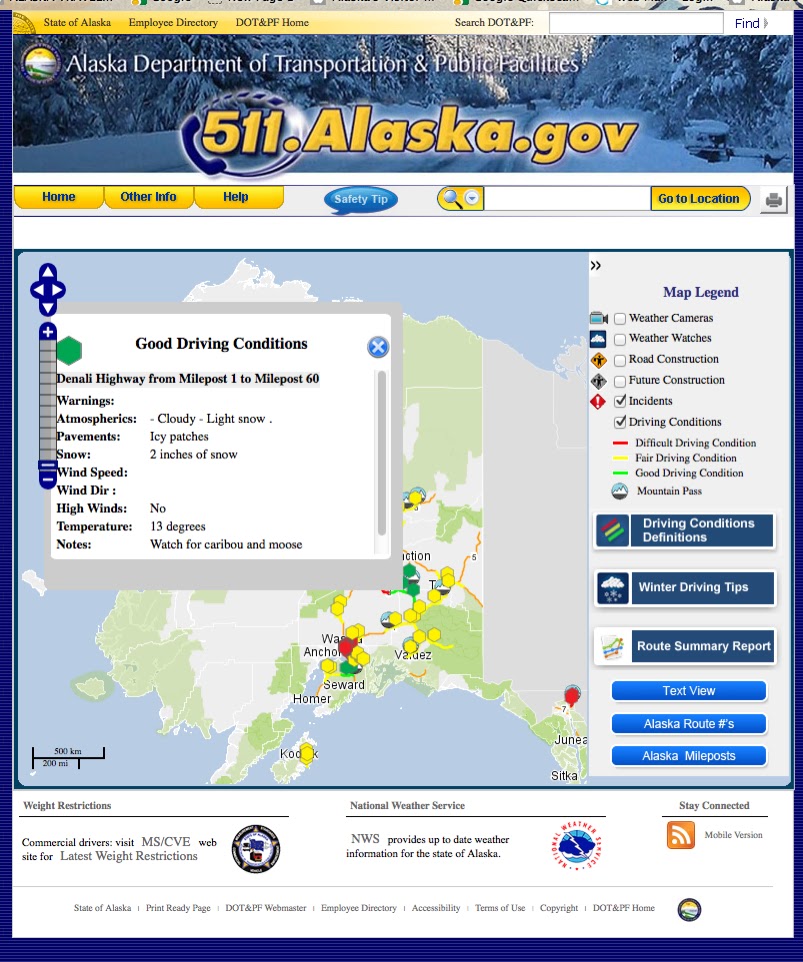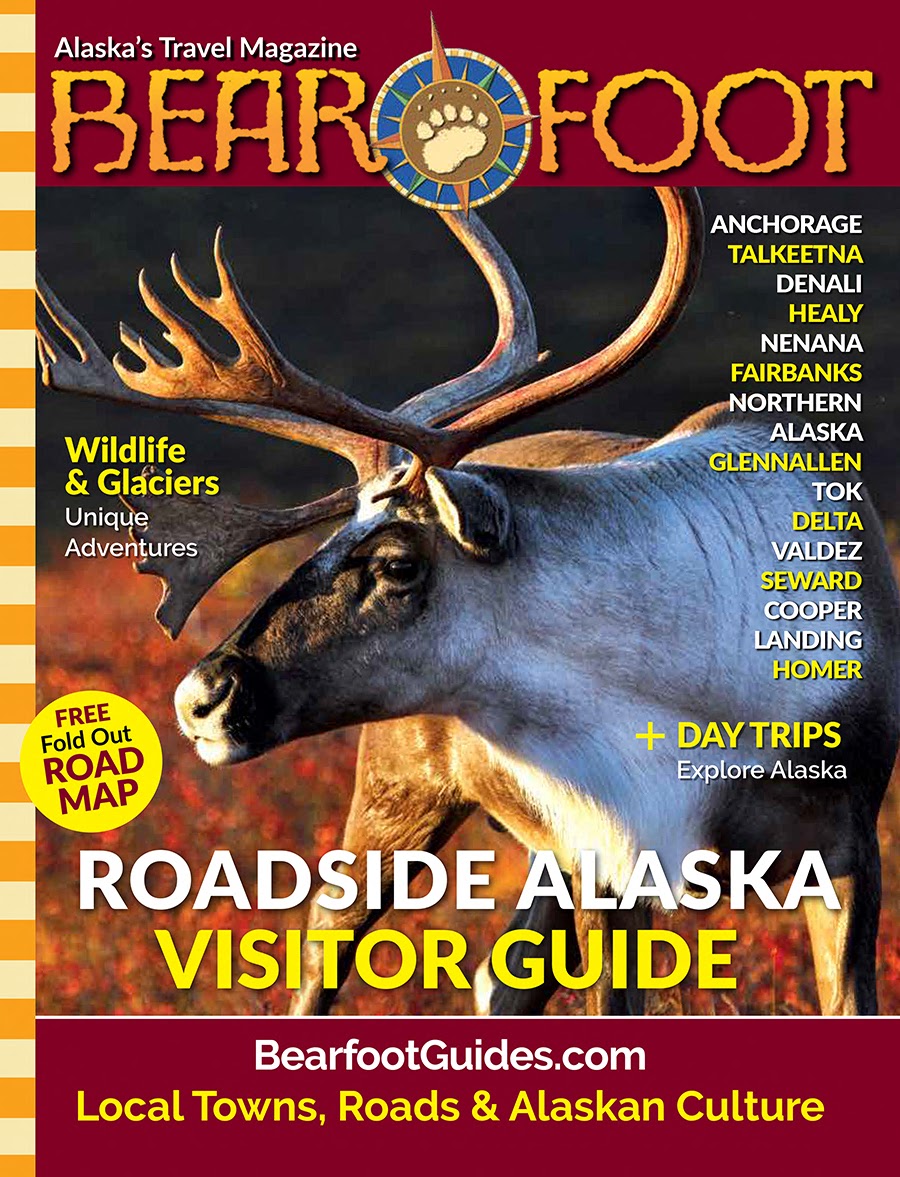Kirk Wilson Comes To The Rescue Of A Swamped Float Plane In The Choppy Waters Of Klutina Lake
Into The Twilight Zone A Story From Rescue Me. All Rights Reserved. Tonsina Lake (Photo, Addison Powell) Death came to you so un...
https://www.countryjournal2020.com/2020/04/perils-of-lakes-rivers.html
Into The Twilight Zone
A Story From Rescue Me. All Rights Reserved.
 |
| Tonsina Lake (Photo, Addison Powell) |
Death came to you so unexpectedly in Alaska. And in such lovely, scenic spots.
During the lonely, frightening days of the 1898 Gold Rush, miners slept out in the open on the rough, sandy soil of the Copper Valley. Wrapped in their heavy oilcloth tarps, they tossed and turned as they swatted mosquitoes and worried about being eaten by a bear. They didn't know it, but bears weren't their problem. Water was.
Out Of The Chugach Mountains
The Chugach Mountain Range sweeps along the southern border of the Copper Valley, separating it from the coast. Its rugged, unnamed peaks march off in a broad arc along the Glenn Highway, toward Anchorage, Alaska's major city. The Chugach is a formidable barrier from the sea. Although its peaks are smaller than those of two other mountain ranges that ring the Copper Valley – the mammoth Alaska Range to the north and the dramatically dense Wrangell Mountains to the east – the Chugach, by any normal standards, is still impressive. Between its desolate peaks are glaciers, left over from the last Ice Age: thick, muscled arteries of ice, flowing north from the beating heart of Alaska, down to the lowlands of the Copper Valley.
Glacial Lakes
There are three big lakes coming out of the Chugach, all of them at the base of a large glacier. Each lake turns into a river. Hard to get to, beautiful, and fraught with danger, the region's glaciers, lakes, and rivers hold a fascination for those with a sense of adventure. The lakes are all in a row: The southernmost is Tonsina Lake. The one in the middle is Klutina Lake. The largest is Tazlina Lake.
Tonsina Lake is the smallest of these Chugach lakes, but that doesn't make it safe.
The Gold Rush-era writer and explorer, Addison Powell, wrote effusively about Alaska's beauty, and this dramatic, silent lake:
"I descended to the Tonsina Lake, that nested between high mountains," he marveled. "Its surface was almost constantly disturbed by the lashing of the salmon, and the flips of the trout. The outlet was crossed by swimming our horses, and camp was made near some Indians." Almost as an afterthought Powell added: "A few days before, Frank Lavigne had been drowned at that place."
Death. It was always such an annoying surprise.
 |
| Whipsawed Gold Rush Boats On The Klutina. (Historic Photo) |
Poor Charles Kelley
Klutina Lake is the next largest body of water, at the base of the 3,799 foot tall Klutina Glacier.
In the Gold Rush, miners had clawed their way through the snow to the top of Klutina Glacier, dragging all their gear, and then struggled down off the glacier, where they built rough-and-ready spruce boats, before setting out at Klutina Lake into the broad Copper River Valley. From there, they tempted fate on the wicked, 63-mile long Klutina River, trying to get all their gear to the spot at the bend of the larger Copper River that was to become "Copper Center."
The Klutina River is a lovely turquoise blue. But beauty isn't everything. The river was a killer. And entering it in your whipsawed little boat was like going into a war zone. George Margeson, one of the early prospectors, wrote about seeing a body floating down the Klutina, below the rocky Klutina Rapids. Miners fished out the man's goods. They could find nothing at first, until at last…
"... in a little bag containing needles, thread, and buttons, as if placed there by his wife or daughter, a small memoranda, and upon the fly-leaf of this little book, written in a feminine hand, these words: 'My name is Charles Kelley, was born in 1844; height, 5 feet 5 inches; weight, 165 pounds; wear 7 1/2 hat; No. 9 shoes, 16 inch collar, 16 shirt; my address is 159 Huntington Avenue, Providence, R. I. In case of accident, notify Jane Kelley, same address.' "
It really was like a war. During the great Civil War, 50 years before, soldiers had pinned their names on pieces of paper inside their jackets, so their loved ones would be able to be told they had died. Loved ones like Jane Kelley. The Gold Rush was just like that too, except this time, the enemy was not a Yankee or a Confederate. The enemy was Alaska's water.
Today, many years after poor Charles Kelley drowned, Al's Muffler and Brakes stands at 159 Huntington Avenue in Rhode Island. Providence is nothing like it was back then. But these days, north in Alaska, nothing has changed. The world that killed Charles Kelley goes on, just as it has for 10,000 years.
Nothing Changes
It was July 14th, 1992, around 100 years after the Gold Rush. Richard Hulpiau, of Bridgeport, New York, had come to Klutina Lake.
Bridgeport is an easy 4 hour drive from Providence, Rhode Island. But Richard had more in common with Charles Kelley than being just another guy from the East Coast with a fascination for Alaska's glacial waters. Richard Hulpiau, like Charles Kelley and Frank Lavigne so many years ago, was about to enter the Twilight Zone.
Richard Hulpiau told his story in the Copper River Country Journal:
"While on a fly-in fishing trip at Klutina Lake, our float plane capsized," he wrote. "Violent winds, which appeared out of nowhere had, in seconds, turned Lake Klutina into a wild body of water, with waves and swells up to 6 feet in height."
The plane flipped over. For all its technology, that little floatplane became as useless as any busted-up miner's boat that had been whipsawed in a spruce forest and then smashed to smithereens in the Klutina Rapids. Richard Hulpiau and his fellow anglers were instantly as alone and helpless as a swamped 1898 gold miner.
"After the plane capsized, the pilot, guide, my traveling companions and myself… sought safety on the pontoons of the now submerged, upside-down aircraft."
A rural Alaskan can tell you it's no small thing to be dumped into the water. Mid-July in high winds, at Latitude 62 degrees, is not the same as somebody else's July. It's so cold in Copper River water that as late is the 1980's, a sizable number of homegrown Alaskans had never learned to swim. They never had the chance, due to the frigid nature of nearby streams. The wind was howling.
"We rode the plane to shore, which took approximately 3 1/2 hours. The plane beached 100 yards from the shoreline. We then had to enter the water, for a near-fatal swim," Richard wrote later.
 |
| An Old Cabin At Tolsona Lake Lodge. (Photo, Country Journal) |
"I was the most severely affected by hypothermia," he said.
The next morning at around 8:30 am, Kirk Wilson, the owner of Tolsona Wilderness Lodge, on distant Tolsona Lake, flew by sheer accident over the miserable crew, looked down, saw them on the shore below, and dropped his plane down to help.
It's a story of unplanned rescue that has been repeated so many times in the Copper Valley that it's practically unexceptional. From the time the miners arrived, lodgeowners have taken over the responsibility of saving people from the wilderness. The people who run Alaska's scattered, modest little lodges and roadhouses have often been first on the scene of almost every sled, truck, snowmachine or ATV crash, every fall into a glacier, every drowning or near drowning. Lodges are the lighthouses of the trails.
Roadhouses are the places where victims of the Alaska experience are taken – to warm up, to be fed, or to have their bodies turned over to the proper authorities.
The Lone Ranger
"I was going over there to do a trip," Kirk said one October, 25 years later. "We were doing raft trips down the Klutina with fishermen. I was taking a bunch of stuff over there, and I just happened to see that plane there, upside down." Kirk landed to check it out. He spotted Richard Hulpiau, and made a snap judgement. "One of them was hypothermic. So I grabbed him, and brought him home with me."
Right behind Kirk was another pilot, Al Lee. Lee's Air Taxi was hauling Kirk's clients. "He went over there and dumped them off and brought the other guys home." It was a lucky coincidence. "They would have had to walk a long ways for help," Kirk said.
After the staff at Tolsona leaped into action, giving the fishermen hot showers, dry socks, food, coffee and cigarettes before turning them loose, Richard Hulpiau went back home to New York State with a dangerous case of pneumonia. Nine days later, when he recovered, he began writing around, asking for the names of his benefactors.
It was as if he had been saved by the Lone Ranger, who had then ridden off on his horse into the sunset, leaving him to wonder, "Who was that masked man?"
He wrote the Greater Copper Valley Chamber of Commerce asking who had helped him, and then he asked to have Tolsona Lake Resort and its staff recognized for "saving me from an uncertain future, and for extending to me all assistance necessary to recover from this ordeal." The heroes did have names, of course. They were Kirk, his wife Julie, and their friend, Susan Corning.
Making french fries, keeping the wood stove going in the middle of the lodge, tucking people in bed, saving lives... it was all in a day's work.











